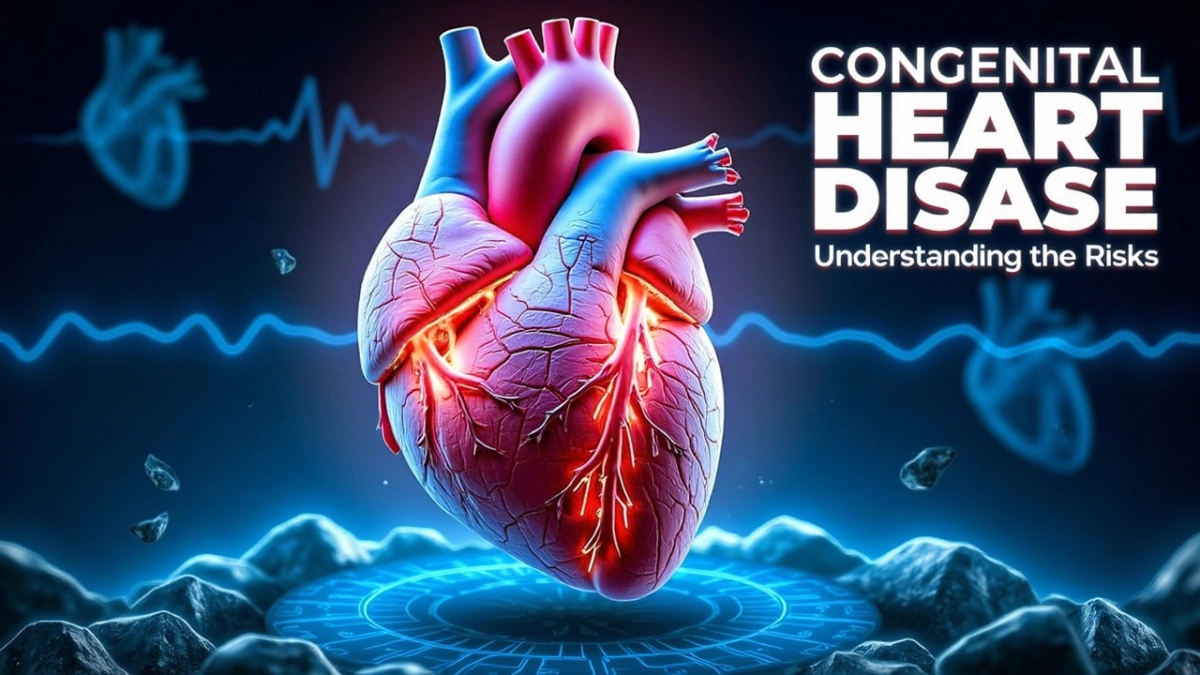Congenital heart disease (CHD) is the most common birth defect, affecting nearly 1 in 100 newborns worldwide. While advances in medicine have improved survival rates, many people live with CHD well into adulthood, requiring lifelong care. This article explores the causes, symptoms, diagnosis, and treatment options for CHD while offering practical advice for patients and families.
What Is Congenital Heart Disease?
Congenital heart disease refers to structural heart defects present at birth, affecting blood flow through the heart and body. These defects range from mild (a small hole in the heart) to severe (missing or malformed chambers).
Types of CHD
- Cyanotic (Low Oxygen) Defects
- Tetralogy of Fallot
- Transposition of the great arteries
- Acyanotic (Normal Oxygen) Defects
- Atrial septal defect (ASD)
- Ventricular septal defect (VSD)
- Patent ductus arteriosus (PDA)
What Causes Congenital Heart Disease?
While the exact cause is often unknown, research suggests these key risk factors:
Genetic Factors
- Family history of CHD
- Chromosomal abnormalities (Down syndrome, Turner syndrome)
Environmental & Maternal Factors
- Maternal diabetes
- Viral infections (rubella) during pregnancy
- Alcohol, smoking, or certain medications
(Expert Tip: Cite a study—e.g., “A 2020 JAMA study found that maternal folate deficiency increases CHD risk by 30%.”)
Symptoms of Congenital Heart Disease
Symptoms vary by severity but may include:
In Infants
- Rapid breathing or grunting
- Blue-tinged skin (cyanosis)
- Poor feeding & slow weight gain
In Older Children & Adults
- Shortness of breath during activity
- Fatigue or dizziness
- Swelling in legs or abdomen
Diagnosis & Treatment Options
Diagnostic Tests
- Fetal echocardiogram (during pregnancy)
- Pulse oximetry (newborn screening)
- Cardiac MRI or CT scans (for adults)
Treatment Approaches
- Medications (e.g., beta-blockers, diuretics)
- Catheter Procedures (minimally invasive repairs)
- Open-Heart Surgery (for complex defects)
Living with Congenital Heart Disease
Many with CHD lead full lives, but long-term care is essential:
- Regular cardiology check-ups
- Exercise modifications
- Emotional & mental health support
(Actionable Tip: “Adults with CHD should ask their doctor about exercise limits—some can run marathons, while others need gentler activities.”)
Conclusion
Congenital heart disease is a lifelong journey, but with early detection, advanced treatments, and proper care, patients can thrive. If you suspect CHD in your child—or were diagnosed yourself—seek a pediatric or adult congenital cardiologist for specialized care.

